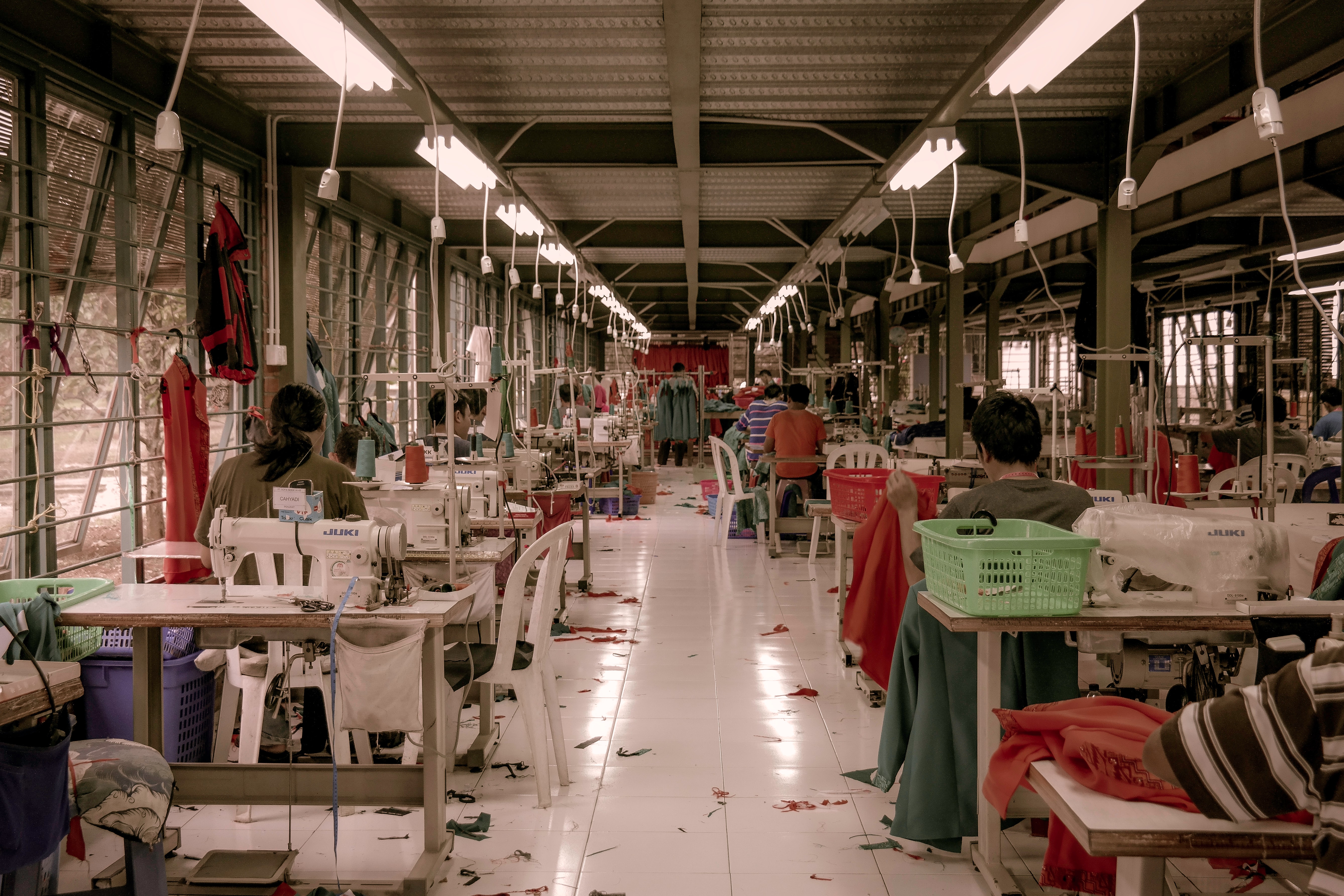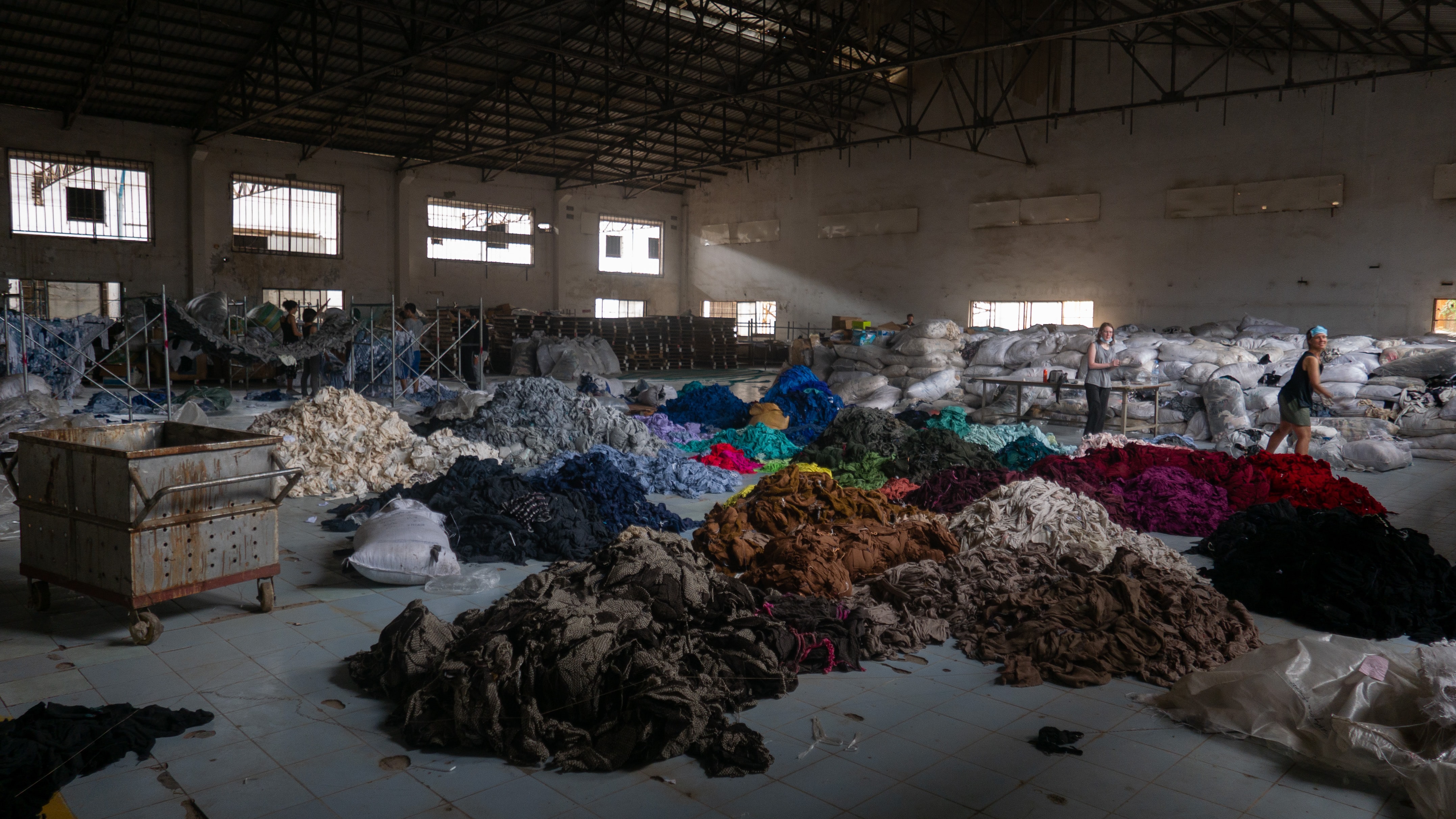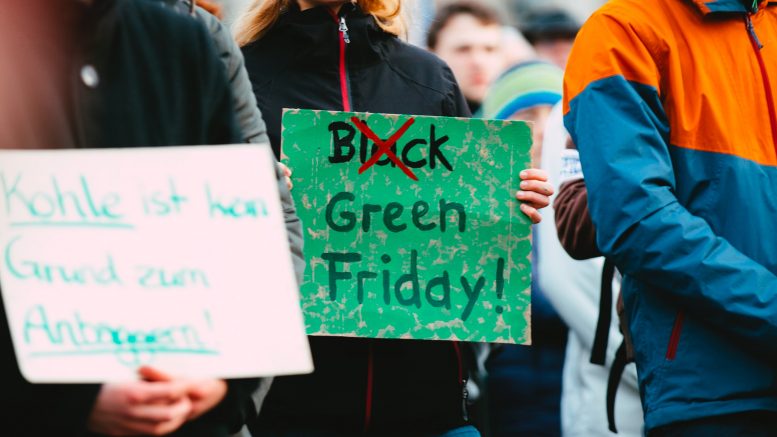Black Friday is a dark day for the environment. Every year, countless people save up for the sales season to catch the best deals, unknowingly supporting a culture of overconsumption. Any penny spent on these deals is an anonymous vote for an excessively capitalist future.
The 2020 pandemic has caused enormous damage to the economy, especially to the high street and fast fashion. Most retailers could not sell as many items as predicted and therefore have ended up stockpiling unsold products, waiting for the sales season to hit.
According to BGMEA, Bangladesh had $3 billion worth of orders cancelled this year, which is approximately a staggering 982 million garments.
“Black Friday is a scam. It’s one more way to get citizens to think they are finding a bargain, when in fact they are hunting an illusion,” says Orsola de Castro, the co-founder and creative director of Fashion Revolution in this year’s press release.
Fashion Revolution has run as a charitable organisation since 2013, created in response to the Rana Plaza disaster in Bangladesh, that ended the lives of over a thousand garment workers.
“Black Friday is about the rush, the speed, the compulsion. At Fashion Revolution we are asking you to stay conscientious, to buy with purpose.”

Photo by Kevin Dowling on Unsplash
Black Friday is most beneficial for big brands and helps them to not lose money on unsold items. Anything they can’t sell ultimately ends up in the sales section.
Therefore, people shopping during sales is a silent, but strong message to companies, saying, it is okay to produce more than what is sold because these sales will get rid of them either way.
“It can also damage or even ruin small businesses that can’t afford to alter their variable costs for that period of time, and that in itself allows bigger businesses to grow even more and monopolise the market whereas smaller family-owned ones go bankrupt” expresses Donna Tzaneva, freelance creative based in Reykjavík, Iceland.
On the other hand, there is an increasing number of eco-conscious brands that are trying to raise awareness year after year. Flamingo’s Life, a Spanish sustainable fashion brand, specialising in vegan sneakers, launched a campaign against Black Friday on Instagram.
They are going to shut down their website for a whole day on the 27th of November as a “commitment of not being part of the inhuman and non-ecological consequences of Black Friday.”
Interestingly, some shoppers will anticipate these immense sales by saving up money. A strategy, practised by many, is buying many products at the same time during the November and December sales.
Whether it has to do with financial struggles, minimising the carbon footprint of deliveries or simply saving money, it is a common way for people to benefit from the sales.
Whilst it seems reasonable to keep the Black Friday and Boxing Day sales in mind and putting off purchasing expensive items, one must consider the carbon footprint these sales leave behind.

Photo by Rio Lecatompessy on Unsplash
Yet, what is equally alarming, is the humanitarian issues stemming from the sales. Fast fashion items are notably cheap compared to their sustainable competitors.
It has a different kind of cost, however, which is the human lives behind the production. Garment workers in developing countries work in dire conditions and are usually overworked in order to make a plethora of clothes. During Black Friday, it is exactly these excessively produced garments that go on sale.
“There are thousands of people behind these businesses that all make a certain percentage from the sale of a product. So when the businesses do steep discounts, the pay for these people is lower” says Irene Achilleos, a London-based fashion student, who is boycotting Black Friday this year.
Closely related to that, one cannot disregard the factor of impulse shopping generated by too-good-to-be-true sales. Shopping can be further encouraged by the promise of a free return policy.
According to a recent study, at least 30% of items bought online end up getting sent back by customers. Some of these items automatically end up in landfills, which on its own is burdensome on the environment, not to mention the negative impact of double-deliveries.

Photo by Francois Le Nguyen on Unsplash
“The practice of sending perfectly functional returned products to landfill is one that occurs widely throughout the industry, and one that consumers should be wary of when they check out online this Black Friday Weekend” emphasises Bronwyn Seier, Fashion Revolution’s content manager.
“We know from our research that brands are most likely to improve their practices when they hear directly from their own customers, which is why we emphasise everyone who shops at a given brand use their voice to challenge the way business is done.”
Taking everything into account, the world would be a better place without the Black Friday sales, but the habit of impulse shopping is a hard one to overcome.
The culture of overconsumption has developed over the decades and unless more companies take a strong stance against these sales, there won’t be any changes.
The issue is two-fold. It is us, consumers, who need to stop creating demand for cheap products so that companies stop overproduction.
The underlying connection between overconsumption and overproduction creates a vicious circle that we need to end together.
Read our guide to an eco-friendly Black Friday here.
Read more about fast fashion here.
Words: Sara Varga | Subbing: Leah Trimmer

